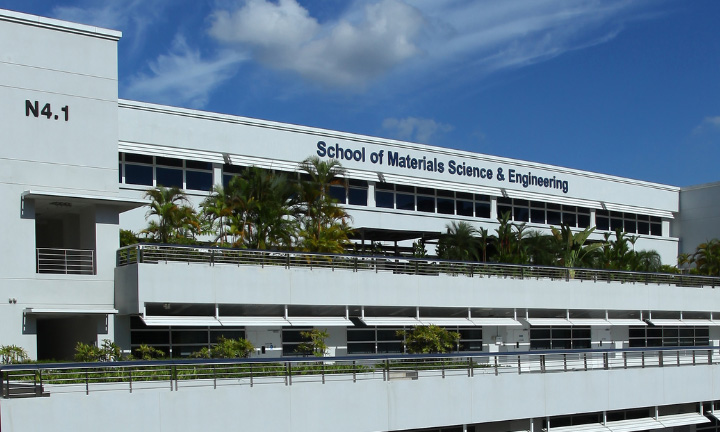From Biocompatible Batteries to Miniaturized Biomedical Devices

24 Apr 2025
11.00 AM - 12.00 PM
MSE E-Studio N4.1-B2-02
Alumni, Current Students
NTU MSE Seminar Hosted by Professor Chen Xiaodong
Abstract
Programmable engineering platforms for active control of medical devices include power sources, delivery mechanisms, communication hardware, and associated electronics, most typically in forms that require invasive surgical implantation and extraction. In this talk, I will introduce our self-powered optoelectronic platform that bypasses key disadvantages of those systems. I will present our studies on the integration of battery materials with biological tissues, as well as miniaturized devices we designed based on the above platform. The examples include a millimetre-scale cardiac pacemaker and a miniaturized drug delivery device. The constituent materials are bioresorbable which naturally degrade after a period of stable operation in the human body. Bioresorbable batteries serve as power supplies. Studies of various bioresorbable electrode materials define the key considerations and guide optimized choices in designs. Programmability relies on the use of external light sources to illuminate wavelength-sensitive phototransistors via wavelength-division multiplexing strategy. In vivo demonstrations of multi-site cardiac pacing and programmed release of lidocaine in small and large animal models illustrate the functionality in the context of electrotherapy and drug delivery. This platform can be readily adapted for a broad range of additional applications.
Biography
Assistant Professor Zhang Yamin
Yamin Zhang is an Assistant Professor under Presidential Young Professorship at the Department of Chemical & Biomolecular Engineering in the National University of Singapore (NUS). She was a Research Associate (Jul 2023–Jan 2024) and a Postdoctoral Fellow (Feb 2021–Jun 2023) in Prof. John A. Rogers’s group at the Querrey Simpson Institute for Bioelectronics, Northwestern University. She received her Ph.D. degree in Chemical Engineering from Georgia Institute of Technology in 2020, under the supervision of Prof. Nian Liu. In 2016, she received a B.S. in Chemical Engineering and Technology from Tianjin University and a B.S. in Finance from Nankai University. Her research focuses on the integration of novel electrode design and battery systems with biological tissues and environmental elements to tackle challenges in healthcare and sustainability. She has published peer-reviewed articles in high-impact journals, including Nature, Nature Biomedical Engineering, PNAS, Cell Biomaterials, Chemical Reviews, and ACS Energy Letters, as first and/or corresponding authors. She is a recipient of several grants/awards, including AHA Early Faculty Independence Award (2023), MIT ChemE Rising Stars (2022), and Best PhD Thesis Award at Georgia tech (2020).
Assistant Professor Zhang Yamin
Presidential Young Professorship
Chemical & Biomolecular Engineering
National University of Singapore (NUS)
Yamin Zhang is an Assistant Professor under Presidential Young Professorship at the Department of Chemical & Biomolecular Engineering in the National University of Singapore (NUS). She was a Research Associate (Jul 2023–Jan 2024) and a Postdoctoral Fellow (Feb 2021–Jun 2023) in Prof. John A. Rogers’s group at the Querrey Simpson Institute for Bioelectronics, Northwestern University. She received her Ph.D. degree in Chemical Engineering from Georgia Institute of Technology in 2020, under the supervision of Prof. Nian Liu. In 2016, she received a B.S. in Chemical Engineering and Technology from Tianjin University and a B.S. in Finance from Nankai University. Her research focuses on the integration of novel electrode design and battery systems with biological tissues and environmental elements to tackle challenges in healthcare and sustainability. She has published peer-reviewed articles in high-impact journals, including Nature, Nature Biomedical Engineering, PNAS, Cell Biomaterials, Chemical Reviews, and ACS Energy Letters, as first and/or corresponding authors. She is a recipient of several grants/awards, including AHA Early Faculty Independence Award (2023), MIT ChemE Rising Stars (2022), and Best PhD Thesis Award at Georgia tech (2020).

